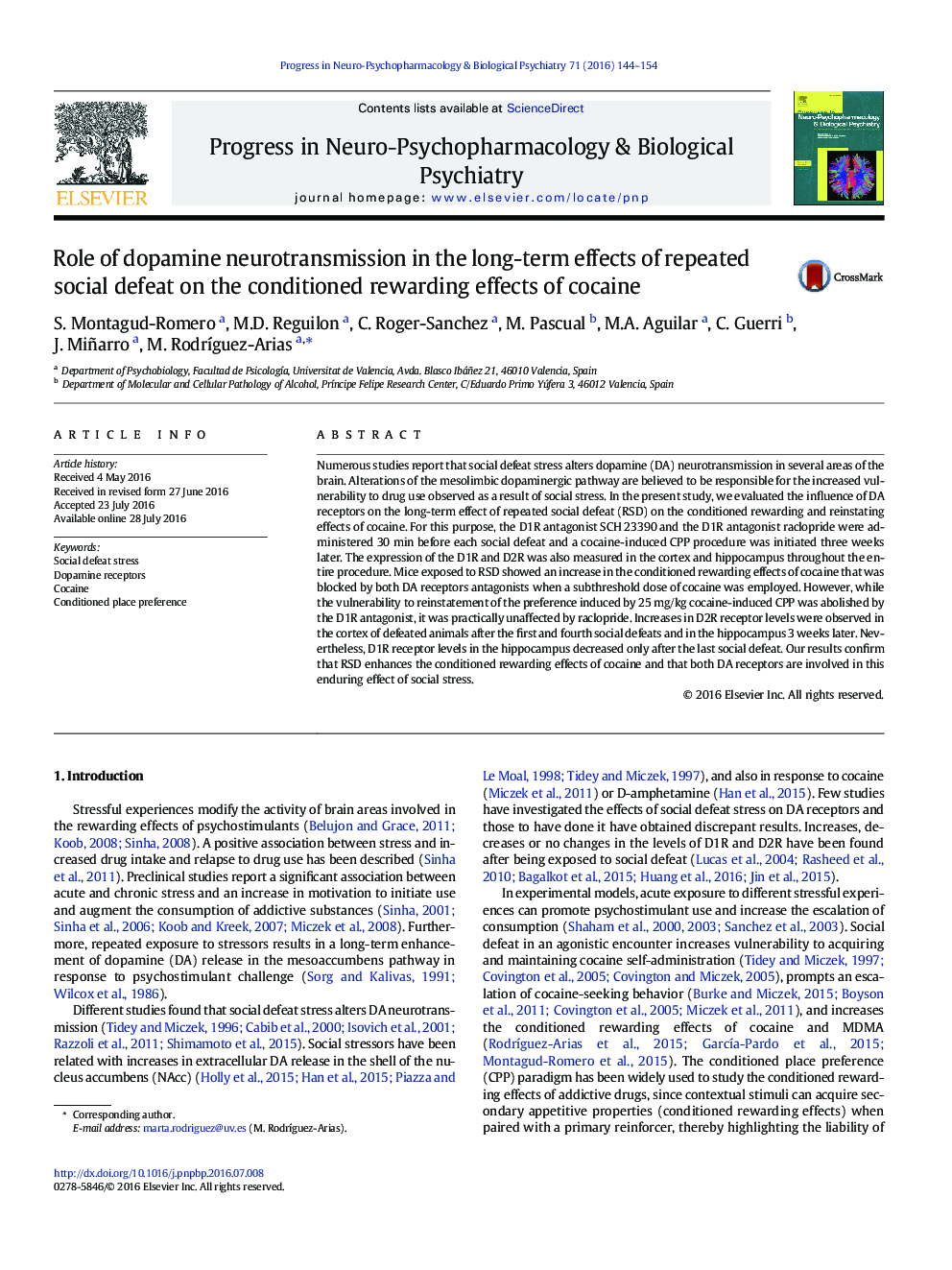| Article ID | Journal | Published Year | Pages | File Type |
|---|---|---|---|---|
| 2564641 | Progress in Neuro-Psychopharmacology and Biological Psychiatry | 2016 | 11 Pages |
•Repeated social defeat (RSD) increased the conditioned rewarding effects of cocaine in mice.•D1R and D2R antagonists (administered before each RSD) blocked subthreshold dose of cocaine CPP.•A D1R antagonist decreased reinstatement of the CPP induced by 25 mg/kg of cocaine in defeated mice.•Repeated social defeat up-regulated levels of the D2R receptor in the cortex and hippocampus.
Numerous studies report that social defeat stress alters dopamine (DA) neurotransmission in several areas of the brain. Alterations of the mesolimbic dopaminergic pathway are believed to be responsible for the increased vulnerability to drug use observed as a result of social stress. In the present study, we evaluated the influence of DA receptors on the long-term effect of repeated social defeat (RSD) on the conditioned rewarding and reinstating effects of cocaine. For this purpose, the D1R antagonist SCH 23390 and the D1R antagonist raclopride were administered 30 min before each social defeat and a cocaine-induced CPP procedure was initiated three weeks later. The expression of the D1R and D2R was also measured in the cortex and hippocampus throughout the entire procedure. Mice exposed to RSD showed an increase in the conditioned rewarding effects of cocaine that was blocked by both DA receptors antagonists when a subthreshold dose of cocaine was employed. However, while the vulnerability to reinstatement of the preference induced by 25 mg/kg cocaine-induced CPP was abolished by the D1R antagonist, it was practically unaffected by raclopride. Increases in D2R receptor levels were observed in the cortex of defeated animals after the first and fourth social defeats and in the hippocampus 3 weeks later. Nevertheless, D1R receptor levels in the hippocampus decreased only after the last social defeat. Our results confirm that RSD enhances the conditioned rewarding effects of cocaine and that both DA receptors are involved in this enduring effect of social stress.
